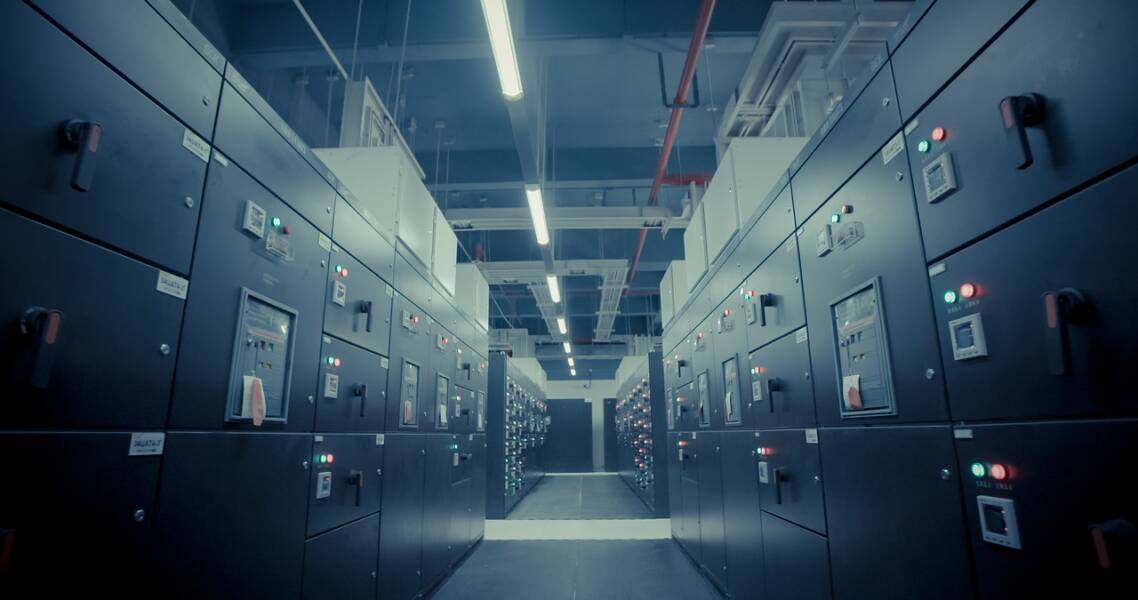A data center UPS (uninterruptible power supply) is a piece of equipment that provides emergency backup power to a data center in the event of a power outage.
A UPS system typically consists of batteries, a generator, and an inverter. The inverter converts the DC (direct current) power from the batteries into AC (alternating current) power, which is then used to run the data center’s critical loads.

A UPS system provides several advantages over other backup power solutions, such as diesel generators. Here are ten reasons why you should consider using a data center UPS for your backup power needs.
-
Increased Reliability
A UPS provides a high degree of reliability compared to other backup power solutions. This is because a UPS system constantly monitors the incoming AC power for signs of trouble and will automatically switch to battery backup power if necessary.
A diesel generator, on the other hand, will only start up when there is an interruption in the main AC power supply. When considering UPS solutions, it’s essential to explore options for custom power supply design, which can offer tailored solutions to meet specific requirements.
-
Reduced Maintenance Costs
A data UPS system requires less maintenance than a diesel generator. This is because a UPS system doesn’t require regular tune-ups and fuel changes like a generator does.
In addition, a UPS system can be monitored remotely, which further reduces maintenance costs.
-
Smaller Footprint
A UPS system takes up less space than a diesel generator. This is because a UPS system uses batteries to store energy, while a generator requires fuel tanks to store fuel. As a result, a UPS system can be located indoors, while a generator must be located outdoors.
-
Lower Operating Costs
A UPS for a data center has lower operating costs than a diesel generator. This is because a UPS system uses electricity from the utility grid to recharge its batteries, while a generator uses fuel to generate electricity. As a result, the cost of running a UPS system is much lower than the cost of running a generator.
-
Cleaner Operation
A center UPS produces no emissions during normal operation, while a diesel generator produces emissions that can be harmful to the environment. In addition, a UPS doesn’t require fuel deliveries as a diesel generator does.
-
Reduced Noise Level
A data center UPS operates at reduced noise levels compared to a diesel generator. This is because a UPS system doesn’t have moving parts as a generator does. As a result, a UPS system can be located indoors, while a generator must be located outdoors.
-
Longer Backup Time
A center UPS can provide backup power for longer periods of time than a diesel generator. This is because a generator will eventually run out of fuel, while the batteries in a UPS system can be recharged.
-
Scalability
As the needs of data centers change and grow, the UPS system must be able to scale accordingly. A scalable UPS system can be easily expanded or reduced to match the changing power needs of the data center. This allows organizations to maintain a high level of uptime and reliability, even as their data center grows and changes.
-
Flexibility
A UPS can be used as part of an integrated solution that includes solar panels and wind turbines. Solar panels can provide power during the day, while wind turbines can provide power at night.
-
Environmentally Friendly
As the world becomes increasingly reliant on digital technologies, data centers are playing an increasingly important role. These facilities are responsible for storing and processing large amounts of data, and they require a constant supply of electricity to keep running.
However, data centers are also major consumers of energy, and they often have a significant impact on the environment. As a result, there is growing pressure on data center operators to find ways to reduce their energy consumption and operate in a more environmentally friendly manner.
TechnologyHQ is a platform about business insights, tech, 4IR, digital transformation, AI, Blockchain, Cybersecurity, and social media for businesses.
We manage social media groups with more than 200,000 members with almost 100% engagement.








































